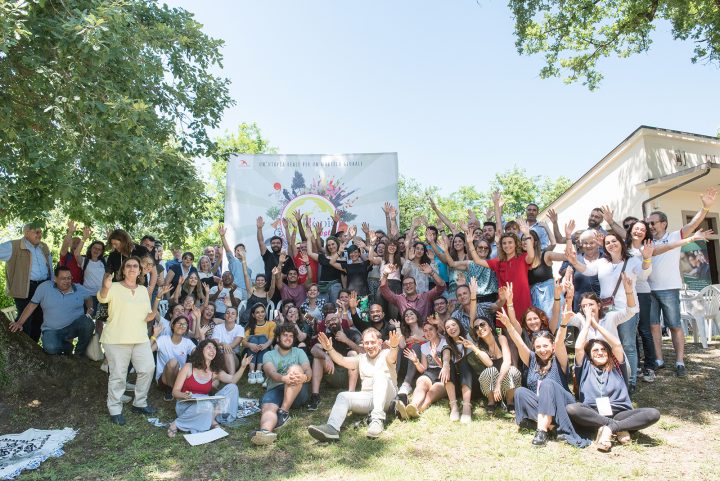When a war breaks out it is as if a conversation, a journey were interrupted.
At Rondine it is the discourse that addresses the conflict, it is the path that looks towards peace.
In these tragic days in which war, terrorism, and every form of violence seem to have interrupted that path, the Citadel of Peace questions itself, like many others, about its mission.
While the rejection of war and violence as a tool for resolving disputes becomes even more firm, the responsibility and will to defend a unique heritage in the world of “impossible friendships”, of bonds of affection and commitment to peace, those of the young people of the World House, the young ‘enemies’ who in Rondine face the conflict outside and inside themselves are also renewed, finding creative tools to transform it through relationships.
The Citadel of Peace offers them a space to process their own pain, to welcome the pain of others and discover that it is not very different from their own, transforming conflict into opportunities for encounter. For this reason, now, it is necessary to take care of and protect that space in which right now these young people are creating an unprecedented “us” that smells of a true future.
What is happening now between Israelis and Palestinians continues to happen between Ukrainians and Russians, as between Armenians and Azerbaijanis in Nagorno Karabakh, in Mali and in the hundreds of forgotten wars around the world: these are the pains of the world that find a path to imagine a new future and break the opposing patterns that in these hours are sowing blood and breaking lives. Listening to our young people we are well aware of the need to pay attention to words and that the name of a people is not a label that can identify everything and everyone. We also see today how [much] more than ever societies are fragmented internally and precisely for this reason the collective duty must be to protect those who care about dialogue between the parties and above all those who continue to do so in these moments.
Despite the wounds, the lacerations, and the thoughts of their families and loved ones, each and every one of our young people tenaciously tries to break these patterns and nourish “the strength of despite”.
Rondine refuses to think that its path could be broken by the new pace of war in recent days, that its commitment to a future of peace could fail in the face of violence.
War wins if it manages to destroy hope and allow anger to become hatred. Rondine’s work today more than ever returns to the roots of humanity to defend the possibility of transforming pain into a path of reconciliation and building a peaceful future.
Rondine Citadel of Peace






